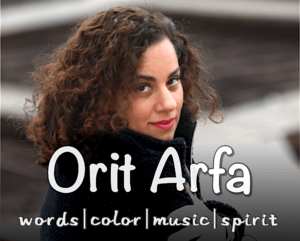The orange ribbon was tied neatly around my rearview mirror.
Through the mirror I saw the face of an acquaintance in the backseat. I was giving her a ride from Tel Aviv to Jerusalem.
When she noticed the color of my political views above the dashboard, she offered her own: “We can’t live in the midst of our enemy. Disengagement is the only sane thing to do.”
“I disagree,” I said simply, avoiding a political debate I wasn’t ready to win fully. I knew I would find out some more truth for myself, that weekend, on my planned trip to Gush Katif.
I had to go to the Gush before it was too late. I had to see what all the contention was about. Friends of the family hooked me up with an 18-year-old named Ayelet, who was doing her national service in the emergency dispatch station in Neve Dekalim, the most urban Gush settlement.
Before sunset heralded in Shabbat, Ayelet and her friends took me for a ride around the Gush. All I could see through the car window were red roofs, palm trees, and the thick blue line of the sea. The place looked like an Israeli Malibu.
Our first stop was a huge nursery filled with thousands of plants.
“I can’t believe they’ll close this,” I said to Ayelet. “They’re even uprooting nature.”
“It’s very sad,” she sighed.
I didn’t take the conversation further because it clashed with the upbeat green life around me.
We ended the afternoon on the beach, the same beach where soldiers occupied the deserted seaside hotel they had evacuated a week earlier. But I hardly noticed them. Instead I watched men play matkot (beachside racket ball), kids splash in the water and a couple snuggle on the sand. The waters looked bluer than those that met the crowded Tel Aviv shore, and much more peaceful.
That evening, as we walked to the family hosting us for Friday night dinner, we passed couples pushing strollers — smiling; kids running in the street — carefree; teenagers wishing us Shabbat shalom — cheerfully.
At dinner, the topic of disengagement hardly came up, and I was annoyed because I had questions: How do you feel? Do you think it’s going to happen? What are you going to do the day of?
But I couldn’t bring myself to break the serene air with such painful talk.
So I looked around me. Hundreds of books lined the walls, china filled the cabinet. There was no sign of anyone leaving, or wanting to leave.
Walking home with the clear skies above us, and the special Shabbat silence enveloping the Gush, I pressed Ayelet.
“I don’t see how they’re going to clear the Gush out.”
“Me neither.”
“People are happy here. They have built their homes here, their livelihood. What are they going to do? Drag people out of their homes? Put them into buses, like cattle? Pack their stuff?”
“It seems so. The army will bring special containers and pack for them.”
“How can they do that?”
“It’s devastating.”
The next day, I had lunch with another family. Pictures of Rav Kook, the father of religious Zionism, adorned the walls of their home. This time, the topic of disengagement came up, but with an air of dismissal.
“God will help us,” said the father.
He and his wife had never left Israel, on principle. I tried to picture what it would be like on the fateful day: What would they do when a soldier knocked on their door — if he didn’t already break it down — and hauled them out against their will?
But I shut off the vision. I decided to give the residents a well-deserved break from the topic of “disengagement,” and they inspired me to do the same for myself. I took a nap for the rest of the Shabbat afternoon.
Finally, on my way out of the Gush, I gave people a ride to Tel Aviv. Shlomi, a handsome 21-year-old who had just finished his army service, sat in the front seat, wearing jeans and a tank top. He lived on a Gush farming community.
Trying to be nonchalant, I asked, “How are people so relaxed?”
“No one wants to think about,” he said. “No one can digest it. It’s like if someone you love is going to die. You don’t want to think about and plan their death.”
The woman I had driven to Jerusalem had said it was sane to evacuate the settlers. Now it was clear to me how it will be one of the maddest things Israel could do. Gush is one of the sanest places in Israel I had ever visited. The people are healthy and happy. They love life and they love Israel.
But maybe that’s what Israel is learning to disengage from: tranquility, joy, health, beauty, idealism, strength and bravery. By uprooting these families, Israel is uprooting the very emotions and values we need to win the fight for Israel — and to remain here, forever.
On my way out of the Gush, driving the three-minute stretch of potentially dangerous road, I looked at my orange ribbon. And I understood even more why it was there.
